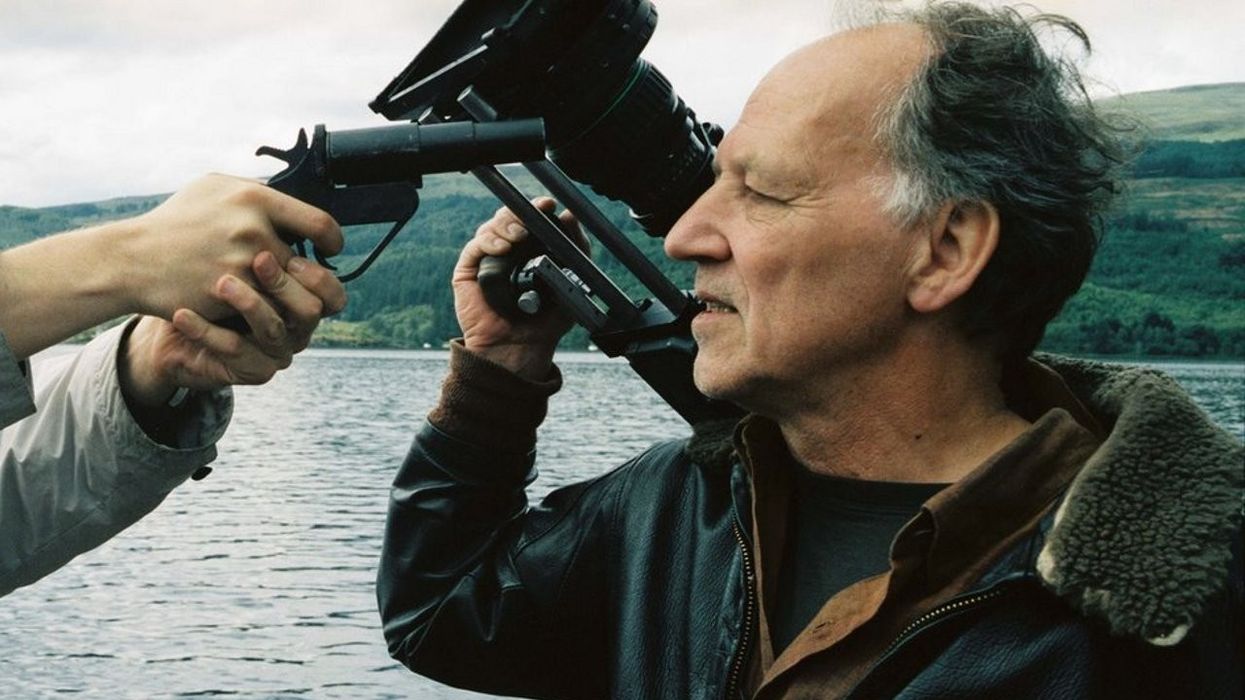Watch Behind the Scenes Werner Herzog Doc 'Burden of Dreams' Free For One Week
It's time to check out this amazing documentary on the epic production of one of the most epic films of all time, Werner Herzog's Fitzcarraldo.

When Werner Herzog ventured into the jungle to make Fitzcarraldo, the story of a robber baron's quest to build an opera house in the heart of the Amazon (as apt a metaphor for filmmaking as any I've encountered), documentarian Les Blank was along to document the process, and for the next week, you can watch the resulting Criterion Collection film, Burden of Dreams, for free on Fandor.
Blank's documentary chronicles the five year struggle Herzog endured to make his film, the main set piece of which necessitated pulling a 320-ton steamer over a mountain in the middle of the jungle. Besides the logistical and financial worries, there was also the fraught (to say the least) relationship the director had with actor Klaus Kinski, his nemesis/alter-ego (they worked together on five films, and their relationship was chronicled in Herzog's documentary, My Best Friend.)
The shoot was made all the more perilous by Herzog's insistence on shooting, "the most daunting scenes without models or special effects, including a sequence requiring hundreds of native Indians to pull a full-size, three hundred and twenty-ton steamship over a small mountain." Kinski's legendary bad behavior even led one of the tribal chiefs to approach Herzog during the shoot with an offer to kill Kinski, no questions asked.
"If I abandon this project, I would be a man without dreams, and I don't want to live like that."
He declined the offer, thankfully, though he told The Guardian, "We had a great love, a great bond, but both of us planned to murder each other...Klaus was one of the greatest actors of the century, but he was also a monster and a great pestilence." Despite all of the troubles, though, Herzog relates that when the investors questioned his enthusiasm, he responded, "How can you ask this question? If I abandon this project, I would be a man without dreams, and I don't want to live like that."
Fitzcarraldo is a must-see for all fans of cinema, and Burden of Dreams is—along with Eleanor Coppola's Hearts of Darkness (her documentary of the production of her husband's Apocalypse Now)—one of the great records of the thin line between folly and greatness that is filmmaking.











